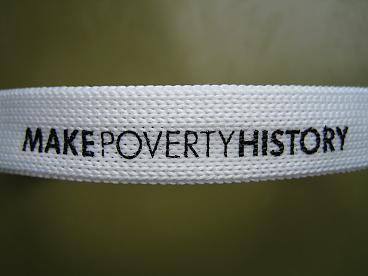Rid the world of poverty, starting with Europe
Rid the world of poverty, starting with Europe
15th October is the International Day against Poverty. In the European Parliament we will spend the whole afternoon in conversation with representatives of organisations fighting poverty and with people who are themselves in a situation without prospects. The central question will be: can we combat poverty via the European Union? My answer is that at the end of the day you can best tackle poverty on the national and local level, but the EU could at least ensure that European measures don’t contribute to poverty.

Photo: Paul Downey (CC BY-NC 2.0)
The figures don’t lie about this: one in four people in the European Union is in danger of falling immediately into poverty or suffering social exclusion. The figure for children is even higher, 28%. The European Anti-Poverty Network (EAPN) drew a clear link in a recent report between this and the policies pursued by the member states on command from Brussels as their response to the economic crisis. Budgetary fetishism has ensured that all kinds of social safety nets are riddled with holes and no longer serve to keep people from suffering a sharp decline into poverty from which they can, left to deal with this themselves, barely escape.
The SP is not calling for new European poverty funds, which would simply mean pumping money back and forth. If member states were left the space by Brussels to invest instead of in blinkered fashion cutting spending, unemployment and poverty would not have grown so high as they have done. By giving people a form of security of existence, you will ensure that they do not become disheartened. By investing, you can create the jobs that offer such opportunities.
For years we have been hearing from Brussels nothing but arguments in favour of small government and placing great faith in marketisation. This is why the social security system in southern Europe has been in large part demolished. In other member states the safety net has become porous. The underlying philosophy is that in the market there are winners and losers, and if sometimes you lose, you have to pull yourself up by your own bootlaces. Otherwise you’re just a loser and it’s your own fault, you fat lump.
The reality tells another story. Because of illness, invalidity or other setbacks people can, for short times or long, no longer cope in the maelstrom of a society governed by the market. The task is then for all of us to show solidarity with them and to provide effective safety nets. The best contribution Brussels can provide is to look at this afresh and put a stop to budgetary fetishism and other measures which undermine the rights of people in difficulties. Europe must stand for a society based on solidarity. That’s why we should be testing as quickly as possible every EU policy against social goals. Commission President Jean-Claude Juncker and newly-appointed Dutch Commissioner Frans Timmermans have both recently shown an interest in social impact. They must now be rapidly introduced, because in a relatively rich continent like Europe poverty should not occur. This is the message that I will be announcing as loudly as possible on 15th October. Hopefully this will, together with the social organisations involved, succeed in shaking the European Parliament awake.
- See also:
- Dennis de Jong
